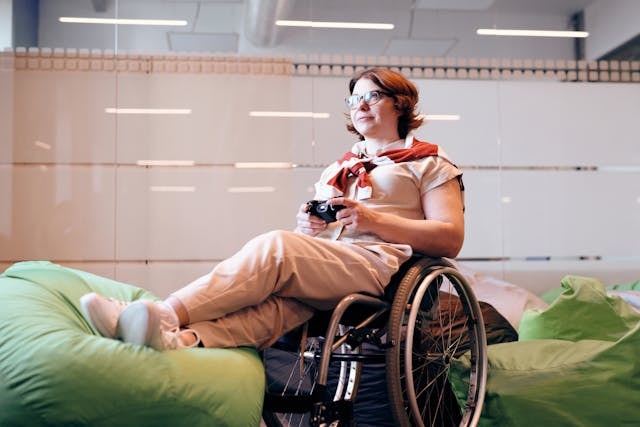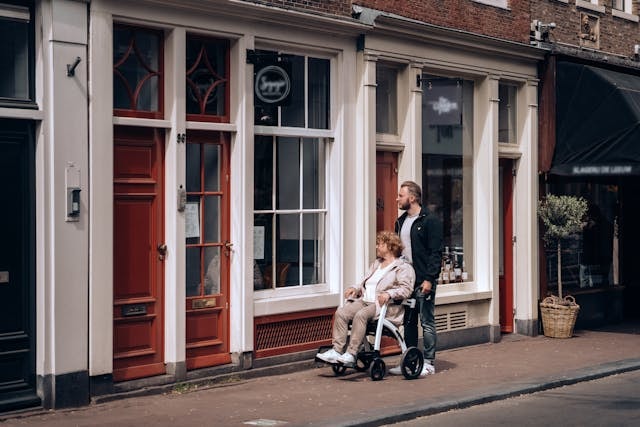
Introduction
Mental health recovery requires a stable and supportive environment, which is why housing plays such a critical role in the process. For individuals living with extreme functional impairments or very high support needs, finding suitable housing can be a challenge. This is where Specialist Disability Accommodation (SDA) comes in, offering housing solutions designed for individuals with disabilities under the National Disability Insurance Scheme (NDIS). In this guide, we’ll explore how Specialist Disability Accommodation works, who qualifies for it, and how to access the best housing through the NDIS.
What is Specialist Disability Accommodation (SDA)?
Specialist Disability Accommodation (SDA) is housing specifically designed for people who have very high support needs or extreme functional impairment. It provides a safe, accessible, and supportive living environment that caters to individual needs. For individuals in mental health recovery, SDA can provide the stability and care necessary to help them regain control of their lives. Under the NDIS, SDA participants can access these housing solutions and benefit from tailored accommodations that enhance their quality of life.
Specialist Disability Accommodation Funding: How It Works

Specialist Disability Accommodation funding is part of the NDIS, covering the cost of specialized accommodation for eligible individuals. This funding is designed to support those with high needs, ensuring they can live in a home that accommodates their unique requirements. The funding typically covers housing modifications, assistive technology (AT), and other personal costs associated with the accommodation. However, it doesn’t usually cover daily living costs like groceries or utilities. Participants need to have an approved NDIS plan that includes SDA funding.
How to Access Specialist Disability Accommodation through NDIS
Specialist Disability Accommodation Eligibility Criteria: Who Qualifies?
To access SDA through the NDIS, participants must meet specific eligibility requirements. These include having extreme functional impairment that require specialized housing. SDA is available to individuals whose disabilities are severe enough that they need additional supported independent living or in a community. To confirm eligibility, participants need to undergo an assessment through their NDIS plan.
Steps to Get Started with Specialist Disability Accommodation
Once you’ve determined eligibility for SDA, the next step is to work with your support coordinator to find suitable housing. Your coordinator can help you navigate the NDIS plan and understand your SDA funding options. They’ll also assist you in locating SDA providers and ensure that the chosen accommodation meets your needs. Participants can also consult with providers directly to learn more about available specialist disability accommodation vacancies.
Types of Specialist Disability Accommodation Properties and Design Categories

Different Specialist Disability Accommodation Housing Options
SDA properties come in various forms, including apartments, houses, and shared homes. These dwellings are specially designed to provide physical access and meet the needs of individuals with disabilities. Specialist Disability Accommodation homes are categorized into different design categories, each tailored to a specific type of disability. This includes physical access features like wide doorways, AT , and custom design elements to enhance daily living.
Specialist Housing Solutions: SDA Property Features
SDA properties are built with specific features that supported independent living and self-care. These features often include modifications such as wide doorways, level access, and AT to make everyday tasks easier. For those with mental health challenges, the stability of a well-designed home is crucial in providing a safe and nurturing environment. Additionally, SDA homes cater to individuals with challenging behaviours, offering the necessary space and safety measures to help residents thrive.
The Role of SDA Providers in Housing Solutions
Choosing an SDA Provider is one of the role of a SDA provider. When choosing an SDA provider, it’s essential to consider factors like their experience in working with individuals with support needs, their range of services, and their NDIS registration. An NDIS registered SDA provider will ensure that you’re receiving accommodation that meets the strict guidelines set out by the NDIS. Additionally, look for providers that offer personalized care plans and flexible housing solutions to accommodate changing needs over time. With that, SDA providers are equipped to cater to individuals with needs. This includes providing homes that are modified to ensure maximum accessibility and comfort. For individuals with mental health challenges, finding an SDA provider who understands the importance of mental health in the recovery process is crucial. These contributors should offer housing options that integrate therapeutic support, allowing residents to receive care while living in a community or independently.
Specialist Disability Accommodation Funding and Individual Costs
How Specialist Disability Accommodation Funding Covers Accommodation and Other Very High Support Needs
SDA funding is designed to cover the accommodation costs associated with specialist disability housing. This can include modifications to the home, AT, and other personal supports. However, participants may still be responsible for paying rent, referred to as the reasonable rent contribution. It’s important to understand what SDA funding covers and what additional costs may arise. Your coordinator can help clarify these details.
SDA Properties Cost: Rent and Other Costs
While SDA funding covers the majority of accommodation costs, participants will still need to contribute to rent. This rent is typically paid directly to the SDA provider and is calculated based on the participant’s income. Additional costs, such as utilities or groceries, may not be covered by SDA funding, so participants should budget accordingly.
SDA Housing for Mental Health Recovery

How SDA Housing Supports Mental Health Recovery
Stable and supportive housing is key to mental health recovery. SDA housing offers individuals with mental health conditions a safe and secure environment where they can focus on their recovery journey. SDA includes special features that make daily living easier, allowing residents to focus on self-care and healing. This supportive environment is essential for individuals who have high levels of care needs, as it ensures they have access to the services they require.
The Impact of Specialist Disability Accommodation on Independent Living
SDA housing plays a critical role in helping individuals achieve greater independence. With support from SDA providers, residents can work towards living independently while still having access to high levels of care. This balance between independence and support is particularly beneficial for individuals recovering from mental health challenges, as it allows them to regain control over their lives while receiving the care they need.
NDIS and SDA Rules for Funding

Navigating the NDIS Plan for SDA Funding
To access SDA funding through the NDIS, participants need to have an NDIS plan that includes SDA funding. This plan outlines the types of housing and supports that the participant requires. The process of navigating the NDIS plan can be complex, but a coordinator can help ensure that participants meet all the necessary requirements and access the appropriate housing solutions.
SDA Regulations: Understanding Your Rights as an NDIS Participant
As an NDIS participant, it’s important to understand the rules governing SDA funding and housing. This includes understanding your rights as a resident, such as the ability to choose your provider and select accommodation that meets your needs. Additionally, participants should be aware of SDA vacancies and the process of applying for housing.
The Future of Specialist Disability Accommodation
Future Trends in SDA Housing
The future of SDA housing looks promising, with a growing focus on innovation and technology to support individuals with disabilities. AT is playing an increasingly important role in SDA housing, with smart home systems and advanced accessibility features becoming more common. As the SDA module evolves, we can expect more housing options that cater to a wider range of needs, ensuring that all individuals can access the care and support they require.
Conclusion

SDA housing provides a valuable solution for individuals with support needs or extreme functional impairments, particularly those recovering from mental health challenges. By offering specially designed SDA homes with tailored support services, this enables individuals to live more independently while still receiving the care they need. If you’re a participant looking for suitable accommodation, working with a registered provider can help you access the best housing options and start your journey towards independent living.
FAQs
1. What is Specialist Disability Accommodation (SDA) and who is it for?
SDA is specialized housing designed for people with very high support needs . It is available through NDIS funding.
2. How can I qualify for SDA funding under the NDIS?
To qualify, you need to meet specific SDA eligibility criteria, including having high needs and being an NDIS participant.
3. What other personal costs does SDA funding cover?
SDA funding typically covers accommodation costs and AT, but costs like pay rent contributions may still apply.
4. How do I find SDA vacancies?
Participants can work with their coordinator to find available SDA dwellings that meet their needs.
5. Can SDA housing help with mental health recovery?
Yes, SDA dwelling provides a stable environment designed to support mental health recovery, including SDA special features that assist with living and extreme levels of care.

